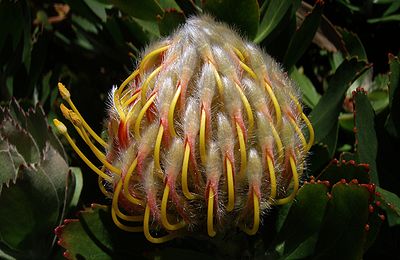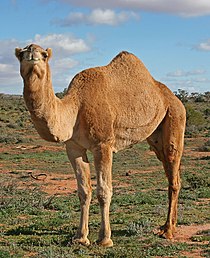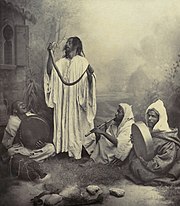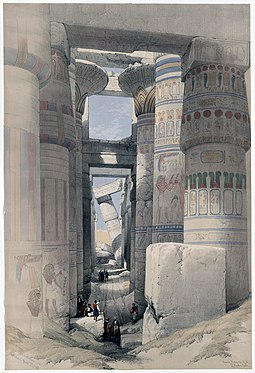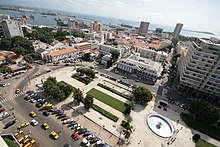Portal:Africa



Africa is the world's second-largest and second-most populous continent after Asia. At about 30.3 million km2 (11.7 million square miles) including adjacent islands, it covers 20% of Earth's land area and 6% of its total surface area. With nearly 1.4 billion people as of 2021, it accounts for about 18% of the world's human population. Africa's population is the youngest among all the continents; the median age in 2012 was 19.7, when the worldwide median age was 30.4. Based on 2024 projections, Africa's population will reach 3.8 billion people by 2099. Despite a wide range of natural resources, Africa is the least wealthy continent per capita and second-least wealthy by total wealth, ahead of Oceania. Scholars have attributed this to different factors including geography, climate, corruption, colonialism, the Cold War, and neocolonialism. Despite this low concentration of wealth, recent economic expansion and a large and young population make Africa an important economic market in the broader global context. Africa has a large quantity of natural resources and food resources, including diamonds, sugar, salt, gold, iron, cobalt, uranium, copper, bauxite, silver, petroleum, natural gas, cocoa beans, and.
Africa straddles the equator and the prime meridian. It is the only continent to stretch from the northern temperate to the southern temperate zones. The majority of the continent and its countries are in the Northern Hemisphere, with a substantial portion and a number of countries in the Southern Hemisphere. Most of the continent lies in the tropics, except for a large part of Western Sahara, Algeria, Libya and Egypt, the northern tip of Mauritania, and the entire territories of Morocco, Ceuta, Melilla, and Tunisia, which in turn are located above the tropic of Cancer, in the northern temperate zone. In the other extreme of the continent, southern Namibia, southern Botswana, great parts of South Africa, the entire territories of Lesotho and Eswatini and the southern tips of Mozambique and Madagascar are located below the tropic of Capricorn, in the southern temperate zone.
Africa is highly biodiverse; it is the continent with the largest number of megafauna species, as it was least affected by the extinction of the Pleistocene megafauna. However, Africa also is heavily affected by a wide range of environmental issues, including desertification, deforestation, water scarcity, and pollution. These entrenched environmental concerns are expected to worsen as climate change impacts Africa. The UN Intergovernmental Panel on Climate Change has identified Africa as the continent most vulnerable to climate change.
The history of Africa is long, complex, and varied, and has often been under-appreciated by the global historical community. In African societies, the oral word is often revered, which has led anthropologists to term them oral rather literate civilisations. The historical process is largely a communal one, with eyewitness accounts, hearsay, reminiscences, and occasionally visions, dreams, and hallucinations, crafted into oral traditions. Time is sometimes mythical and social, and truth generally viewed as relativist. The lack of comprehensive written records has meant that African historiography was largely conceived by outsiders (Europeans and Arabs) with still tasked with building the institutional frameworks, incorporating African epistemologies, and enforcing an African perspective.. (Full article...)
Selected article –
Orishas (singular: orisha) are divine spirits that play a key role in the Yoruba religion of West Africa and several religions of the African diaspora that derive from it, such as Haitian Vaudou, Cuban, Dominican and Puerto Rican Santería and Brazilian Candomblé. The preferred spelling varies depending on the language in question: òrìṣà is the spelling in the Yoruba language, orixá in Portuguese, and orisha, oricha, orichá or orixá in Spanish-speaking countries.
According to the teachings of these religions, the orishas are spirits sent by the supreme creator, Olodumare, to assist humanity and to teach them to be successful on Ayé (Earth). Rooted in the native religion of the Yoruba people, most orishas are said to have previously existed in òrún—the spirit world—and then became Irúnmọlẹ̀—spirits or divine beings incarnated as human on Earth. Irunmole took upon a human identity and lived as ordinary humans in the physical world, but because they had their origin in the divine, they had great wisdom and power at the moment of their creation. (Full article...)
Featured pictures –
Did you know (auto-generated) -

- ... that the parliamentary sign-language interpreter could not make out what South African MP Joan Fubbs tried to say in her tribute to President Cyril Ramaphosa?
- ... that after anti-apartheid activist David Rabkin was sentenced to prison in South Africa, he gave the courtroom the clenched-fist black power salute?
- ... that after Benjamin Moloise's execution, the extremist group Direct Action bombed two Paris companies linked to South Africa in protest?
- ... that makwerekwere is the South African equivalent of "barbarians", an offensive and derogatory slur used to refer to foreigners?
- ... that in a study for UNICEF, Reginald Green found that more than two million children under the age of five had died in Angola and Mozambique due to the South African apartheid regime's economic policies?
- ... that nursing educator Helen Turner Watson was one of the first African-American women to become a commissioned officer in the United States Navy?
Categories
Selected biography –
Jason Sendwe (1917 – 19 June 1964) was a Congolese politician and the founder and leader of the General Association of the Baluba of the Katanga (BALUBAKAT) party. He later served as Second Deputy Prime Minister of the Democratic Republic of the Congo (then Republic of the Congo) from August 1961 until January 1963, and as President of the Province of North Katanga from September 1963 until his death, with a brief interruption.
Sendwe was born in 1917 in Mwanya, Kabongo Territory, Belgian Congo, to a ethnic Baluba family. He was educated in Methodist schools and nursing institutions. Unable to become a doctor due to a lack of medical schools in the Congo, he found work as a minister, teacher, and nurse. He became involved in several cultural organisations, and in 1957 founded BALUBAKAT to fight for the interests of the Baluba. He espoused Congolese nationalism and believed that the Congo should remain a united country after Belgian rule. In May 1960, shortly before the country's independence, he was elected to the newly constituted Chamber of Deputies. Sendwe sought to obtain control over the government of Katanga Province, but lost to a power struggle against his rival, Moïse Tshombe, and the Confederation of Tribal Associations of Katanga (CONAKAT) party. Regardless, Prime Minister Patrice Lumumba nominated him for the office of State Commissioner for Katanga. (Full article...)
Selected country –
 |
 |
||
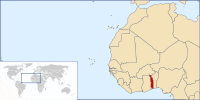
| |||
Togo, or the Togolese Republic, is a country in West Africa bordering Ghana in the west, Benin in the east, Burkina Faso in the north, and the Gulf of Guinea in the south, where the capital Lomé is located.
Togo's small sub-Saharan economy is heavily dependent on both commercial and subsistence agriculture, which provides employment for 65% of the labor force. Cocoa, coffee, and cotton together generate about 30% of export earnings. Togo is self-sufficient in basic foodgoods when harvests are normal, with occasional regional supply difficulties. In the industrial sector, phosphate mining is by far the most important activity, although it has suffered from the collapse of world phosphate prices and increased foreign competition.
Togo's culture reflects the influences of its 37 ethnic groups, the largest and most influential of which are the Ewe, Mina[disambiguation needed], and Kabre. Despite the influences of Christianity and Islam, over half of the population follow native animistic practices and beliefs. French is the official language. (Read more...)
Selected city –
Dakar (/dɑːˈkɑːr, dæ-/ UK also: /ˈdækɑːr/; French: [dakaʁ]; Wolof: Ndakaaru) is the capital and largest city of Senegal. The department of Dakar has a population of 1,278,469, and the population of the Dakar metropolitan area was at 4.0 million in 2023.
Dakar is situated on the Cap-Vert peninsula, the western-most point of mainland Africa. Cap-Vert was colonized by the Portuguese in the early 15th century. The Portuguese established a presence on the island of Gorée off the coast of Cap-Vert and used it as a base for the Atlantic slave trade. France took over the island in 1677. Following the abolition of the slave trade and French annexation of the mainland area in the 19th century, Dakar grew into a major regional port and a major city of the French colonial empire. In 1902, Dakar replaced Saint-Louis as the capital of French West Africa. From 1959 to 1960, Dakar was the capital of the short-lived Mali Federation. In 1960, it became the capital of the independent Republic of Senegal. Dakar will host the 2026 Summer Youth Olympics. (Full article...)
In the news
- 12 February 2024 –
- Two boats collide on the Congo River near Kinshasa, Democratic Republic of the Congo; with the death toll remains unclear. (AP)
- 11 February 2024 – 2023 Africa Cup of Nations
- In association football, hosts Ivory Coast win their third Africa Cup of Nations by defeating Nigeria 2–1 in the final. Sébastien Haller scores the winning goal in the 81st minute. (The Guardian)
- 10 February 2024 – Somali civil war
- Four Emirati soldiers and a Bahraini military officer are killed, while ten other people are injured, when a soldier opens fire at a military base in Mogadishu, Somalia, before being killed in the ensuing shootout. Al-Shabaab claims responsibility. (AP)
- 10 February 2024 –
- A Eurocopter EC130 helicopter crashes near Nipton, California, United States, killing all the six people on board, including Nigerian banker Herbert Wigwe. (CBS News)
- 10 February 2024 – 2023–2024 Senegalese protests
- Violent protests occur in Senegal following an announcement by President Macky Sall that presidential elections have been delayed from February 25 to December 15. (Sky News)
- 9 February 2024 –
- At least 18 people are killed during a collision between a bus and a truck on a road in Kinshasa, Democratic Republic of the Congo. (AP)
Updated: 16:33, 14 February 2024
General images -
Africa topics
More did you know –
- ...that Rukwanzi Island, an island in Lake Albert, one of the African Great Lakes, is the subject of a territorial dispute between the Democratic Republic of the Congo and Uganda?
- ...that Oumarou Sidikou, vice-governor of the Central Bank of West African States from 1988 to 1993, was a minister in the government of Nigerien Prime Minister Hama Amadou, which was ousted by a military coup in 1996?
- ...that Jason Dunford, an All-Africa Games gold medalist and runner-up for the 2006 Kenyan Sportsman of the Year award, has a younger brother who was selected "most promising sportsman" at the same awards?
- ...that Sam Mbakwe, governor of Imo State from 1979 to 1983, served in the army of the Republic of Biafra, an Igbo secessionist state in southeastern Nigeria, during the Nigerian Civil War?
Related portals
Major Religions in Africa
North Africa
West Africa
Central Africa
East Africa
Southern Africa
Associated Wikimedia
The following Wikimedia Foundation sister projects provide more on this subject:
-
Commons
Free media repository -
Wikibooks
Free textbooks and manuals -
Wikidata
Free knowledge base -
Wikinews
Free-content news -
Wikiquote
Collection of quotations -
Wikisource
Free-content library -
Wikispecies
Directory of species -
Wikiversity
Free learning tools -
Wikivoyage
Free travel guide -
Wiktionary
Dictionary and thesaurus


